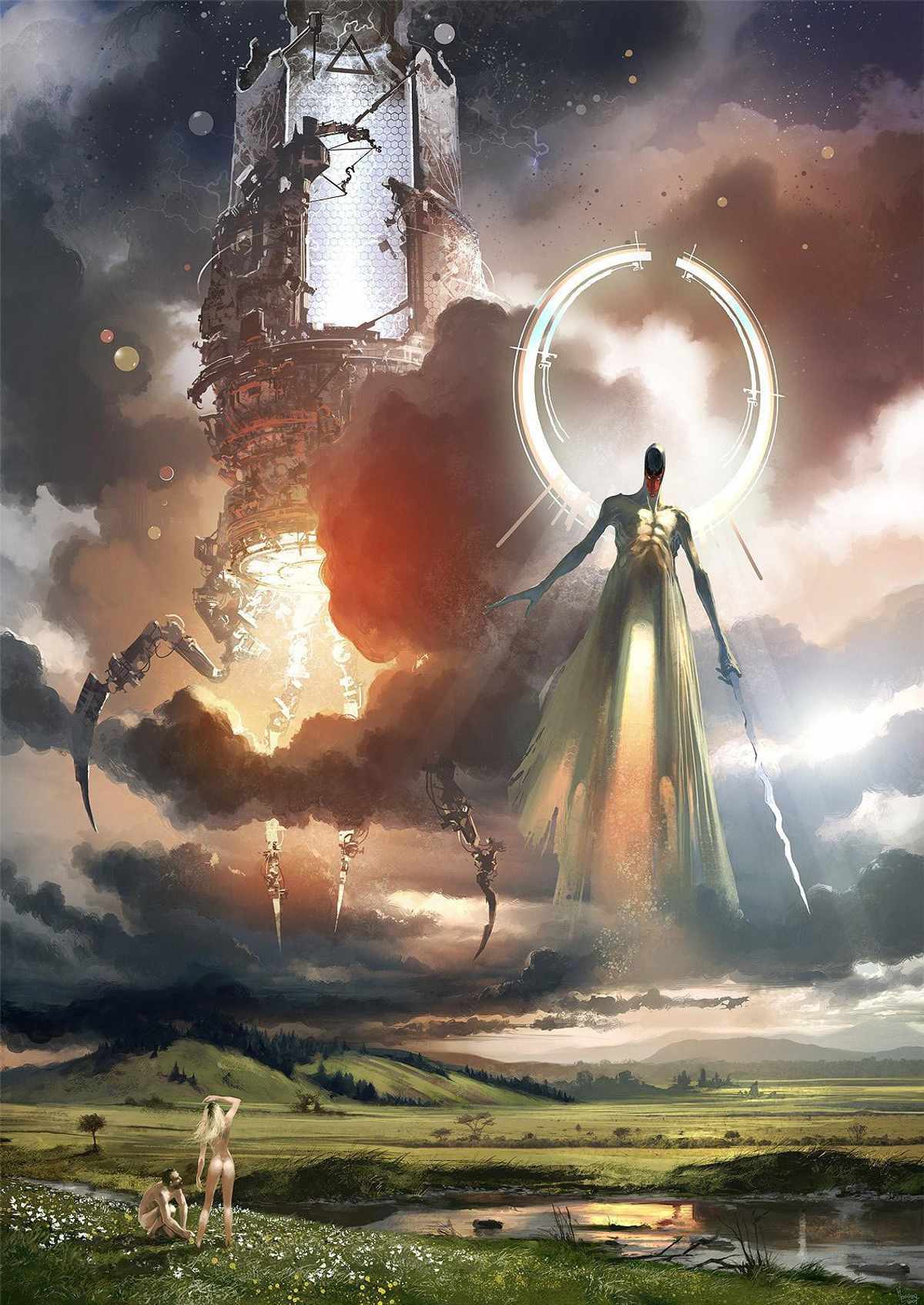Life makes more sense when viewed as a planetary process.
Life makes more sense when viewed as a planetary process.

https://cdn.ecohustler.com/media/2019/03/19/earth_from_space1.jpgThe contemporary, consensus understanding of life as a characteristic of individuals is giving way to something more expansive. Life makes more sense when viewed as a planetary process and this has important ramifications for human identity and our relationship with other species.
The concept of an individual living organism is a projection of our modern, atomistic sense of self. A sense of separateness may, at least, reduce well being and, at worst, be considered the root trauma of modernity. This suffering manifests, at the planetary level, as the collapse of biodiversity.
Where reductionist science leads, education is compelled to follow. Children are taught that living things eat, shit, fuck and die. Apparently, our principle characteristic is survival in an uncaring universe; the ubiquitous battle against entropy. https://cdn.ecohustler.com/media/2019/03/19/DNA-human.pngWorse, fundamentalists like Dawkins insist we are selfish automatons, dancing to the beat of a maniac drummer who pounds on a xylophone of DNA that coils, inexplicably out of the Big Bang, through our minds and into the inevitable big chill of thermal death.
No wonder our kids plugin to digital dystopias for light relief.
If life was a characteristic of individual beings we might expect to find some, randomly floating in space. Clearly, this is impossible. Life requires the support system we call a biosphere in order to exist. This is not a trivial point, if you are dragged into space you will die in seconds.
The biosphere regulates against the harsh extremes of space principally via an energetically activated atmosphere. Within this, it provides for every other biological need.
As new creatures on an extended branch of the tree of life we have evolved out of billions of years of prior evolution that has literally laid the ground for us. The fertile soil we walk on, is everything that lived before us, dead. Most species that have ever existed are extinct. Those that remain are our natural bed fellows. We are perfectly nestled within this unfathomably rich, living matrix.
No planet could be only partly alive. If a dead planet suddenly had a miraculous life event in a cave - what would be the chance of it surviving just there? A single hit from a meteorite, violent solar activity, a gamma ray burst, any random celestial event could wipe it out. Over a long enough time period extinction is inevitable.
https://cdn.ecohustler.com/media/2019/03/19/magnetosphere.jpgThe only way a miraculous life event can become an effectively immortal living process is to spread over the entire planet and turn into Gaia.
Once a planet is alive, it creates an atmosphere that shields and protects. It creates myriad forms. It digs in, lays soil and reaches up to collect more light. The increasingly complex living fabric of the world is resilient. A meteorite may tear up one part but it grows over, heals and diversifies.
Our biology of eating, breathing and excreting is the continuous cycling of matter through the network of beings that is the planet's living fabric. Separation is a temporary illusion. When we die our atoms continue, "Rolled round in earth's diurnal course, With rocks, and stones, and trees." https://cdn.ecohustler.com/media/2019/03/19/quiver_tree.jpgUnderstanding ourselves to be a small part of something bigger is both humbling and ennobling. Domination is not only impossible, attempting it is self defeating. Nature isn't a resource to be chopped up and sold. In a very practical sense, it is us. https://cdn.ecohustler.com/media/2019/03/19/underwater-tiger.jpgIndustrial, technologists may think that we can afford to lose a significant chunk of the biosphere's diversity. Perhaps we can muddle on without those little known fish, plant or amphibian species? Perhaps we will find a technological replacement to fulfil their ecological function? Perhaps not.
These vague assumptions underly the rubric of the ideology of a continuous growth economy and to say it is risky is the understatement of the aeon. The fire-sale of the life-support systems that sustain us ends with a collapse of civilisation. This isn't sensationalist indeed it has been the destiny of all civilisations that don't become planetary.
Rather than trying to achieve absolute ecological control as a "god species" we can acknowledge the innate, tried and tested genius of the natural world. It has successfully held the ravages of space at bay for billions of years.
The surest way of being sustainable is simply by leaving natural systems in place - by preserving vast tracks of wilderness. As Gregory Bateson put it, "I surrender to the belief that my knowing is a small part of a wider integrated knowing that knits the entire biosphere or creation."
We can use the genius of our technology to live thrilling lives in the spaces in-between the crucial life-sustaining ecological zones. Our planet can remain largely forested, large terrestrial mammals can roam the land and the seas can be full of life - surely the world most of us actually want to live on?https://cdn.ecohustler.com/media/2019/03/19/europe-natural-world.jpg
With the natural infrastructure of our world in place we gain stability. We can slow and then reverse global warming and reverse the acidification of the oceans. We can preserve biodiversity and ensure healthy food supply. This opens up the future to our civilisation - the time we need to become a multi-planet species. Human technology could be the means by which Gaia becomes fertile. Fertilising a distant planet will require extended time in space. To stay alive, our vessel must contain a mini-ecosystem to provide air, food and water.
https://cdn.ecohustler.com/media/2019/03/19/biosphere-spaceship.jpeg A NASA designed space colony from the 1970s housing about 10,000 people
To our single-planet perspective, space may seem inhospitable. But individuals are to the biosphere as living planets are to the universe. Gaia creates the conditions that enable life and the universe creates the conditions that enable Gaias - the "anthropic principle." Does this universe want to be alive?
Living processes may seem to contradict the second law of thermodynamics but biology emerged out of physics. The laws of physics dictate the structure of DNA, and is stability and computational properties all flow out of that structure.
If our universe seems acutely poised as a crucible of life, and if life appears to be gravitated towards complexity, it seems a wilful blasphemy to insist life is random, pointless and will end in darkness. Couldn't life actually be the driving force of the universe? A process by which the cosmos awakens and knows itself?
Billions of years hence mightn't our decedents, using technology we cannot fathom, bypass the universe's entropic, thermal death by seeding a new universe that contains again, the fine-tuned physical laws that will bring forth life. This biocentrism solves the anthropic conundrum and the God Delusion.https://cdn.ecohustler.com/media/2019/03/19/space_baby.jpg The science project, perhaps paradoxically, pushes humanity to the periphery. Copernicus shattered the babyish illusion that our species is at the centre of the universe. Every subsequent discovery pushes us further out. Not only are we not the pinnacle of complexity there may be at least 30 billion other planets in the universe capable of life and therefore sentience and technology. As our own glory fades the systems of which we are a part shine brighter. Just as a baby's life enriches when it becomes aware of others, so our civilisation can relish getting over itself. Consciousness does not reside solely in our skulls. https://cdn.ecohustler.com/media/2019/03/19/alien_god.jpg Alien God
There may well be galaxy-spanning civilisations out there, comprised of species that evolved beyond war with their own biospheres eons ago. These species may eye us with wary caution. Clutching our nuclear weapons for national "security", fighting wars for "peace" demonising our own sexuality and systematically selling each other the life and culture we innately are.
We are not so much conflicted as poised on an evolutionary razor. We could just as easily tip into oblivion as ride out of the darkness of competition. As Bucky Fuller put it "We know now what we could never have known before — that we now have the option for all humanity to 'make it' successfully on this planet in this lifetime. Whether it is to be utopia or oblivion will be a touch-and-go relay race right up to the final moment."
The anthropic principle groups thinking around why our universe appears fine-tuned to create life. It seems that we are what happens if you give a universe like ours enough time.
Today, civilisation hangs in the balance and our generation will determine the fate of life on this world for tens of thousands of years. Competition for economic growth or cooperation for planetary health? Our choices will make the difference.
Reinterpreting life, not as a property of individuals, but as a property of planets leads us to the inevitable conclusion. You, me, we... are Gaia. So what shall we choose? https://cdn.ecohustler.com/media/2019/03/19/EGO-ECO-A7_v3_Visual.jpg


